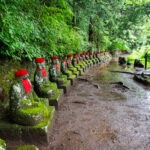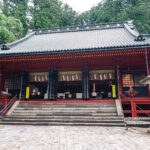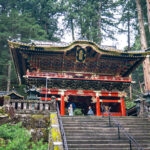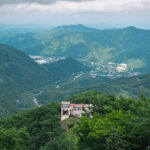This post may contain affiliate links. Please read our disclosure policy.
Tucked away in the calm of Nikko, the Tamozawa Imperial Villa is a historic getaway that combines timeless Japanese craftsmanship with Western sophistication.
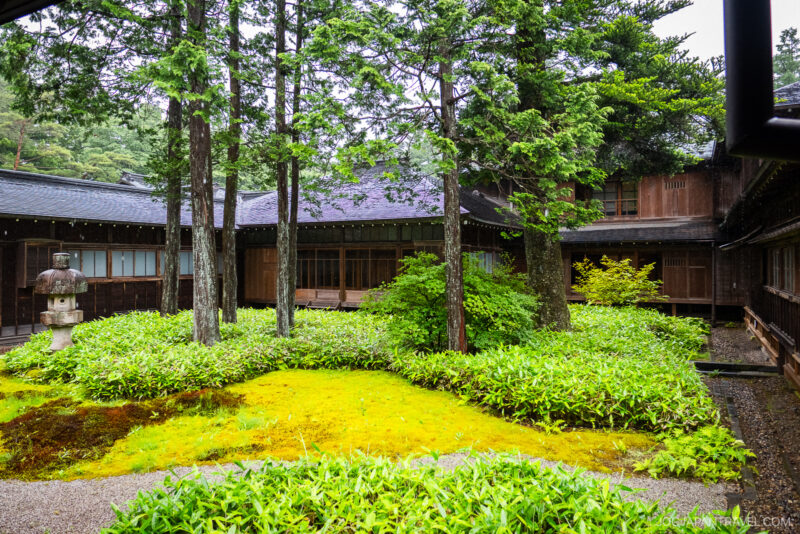
A Glimpse Into Japan’s Modern Imperial Past
While Nikko is best known for its shrines and sacred forests, the Tamozawa Imperial Villa tells a different story. Built in 1899 for Emperor Taisho, it served as both a royal retreat and a safe haven during the turbulent years of the 20th century. The villa bridges the world of Edo-period craftsmanship and early Meiji-era Western influence, making it a rare window into Japan’s modernization.
What Makes the Imperial Villa Special
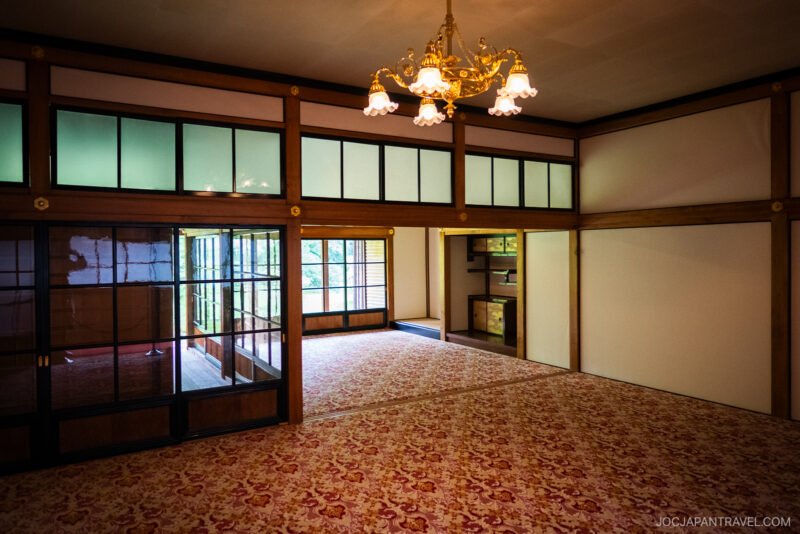
A Blend of Japanese and Western Design
Walking through the estate, we were struck by how seamlessly tatami rooms with sliding fusuma screens opened into Western-style parlors with chandeliers and patterned carpets. This intentional fusion symbolized Japan’s rapid transition during the Meiji era, balancing progress with tradition.
One of Japan’s Largest Wooden Buildings
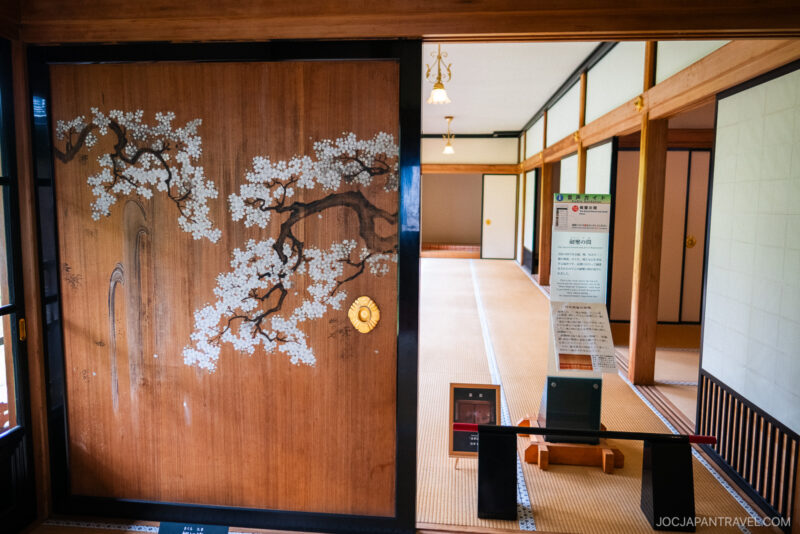
The villa has over 100 rooms, making it one of the largest surviving wooden residences in the country. Visitors can explore many of them on a self-guided route, which offers an intimate view of imperial life.
Exhibits With English Guidance
The exhibits throughout the villa include English descriptions that explain not only the building’s history but also daily customs of the Imperial family. We found these panels helpful for understanding both the architecture and the cultural shifts of the period.
Exploring the Gardens
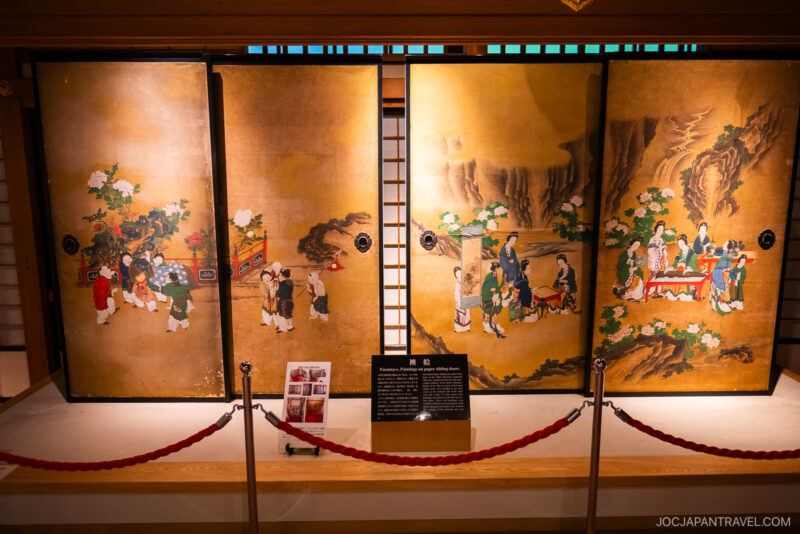
The gardens are as memorable as the villa itself. Trails lead past carefully shaped pine trees, winding paths, and hidden benches perfect for resting or taking photos.
Fun fact: what survives today is just one-third of the original villa complex. Its preservation highlights the scale and importance of this once-grand retreat.
How to Get to Nikko Tamozawa Imperial Villa Memorial Park (日光田母沢御用邸記念公園)
Train
From Tokyo, ride Tobu Railway from Asakusa to Tobu-Nikko Station. Or take the JR Tohoku Shinkansen to Utsunomiya, then the JR Nikko Line to JR Nikko Station.
Bus
From Tobu-Nikko or JR Nikko Station, take a Tobu Bus bound for Yumoto Onsen, Chuzenji Onsen, Okuhosoo, or Kiyotaki. Get off at Tamozawa stop. Walk about 1 minute.
Car
From the Nikko Interchange on the Nikko Utsunomiya Toll Road, it is about 3.5 km.
Pro Tip: Consider the Nikko Pass World Heritage Area for bus travel in central Nikko. It can save time and money.
Our Thoughts on Nikko Tamozawa Imperial Villa Memorial Park
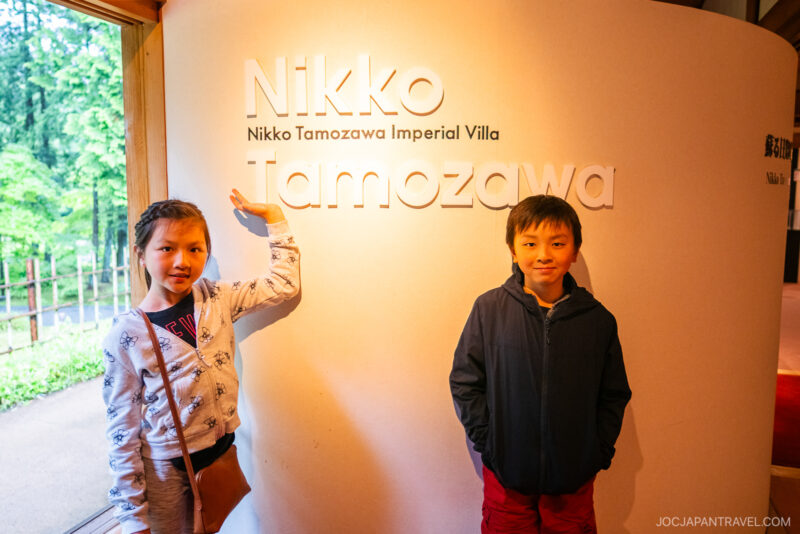
The villa, set within beautifully maintained grounds, gives us a rare look at Japan’s modern imperial history.
Unlike Nikko’s shrines, which highlight spiritual traditions, this estate tells the story of diplomacy, lifestyle, and cultural change. Its quiet setting and detailed exhibits make it a worthwhile stop for history lovers and anyone curious about Japan’s path into modern times.
More to Explore Nearby
The former Imperial Villa, with its unique blend of architectural styles and peaceful gardens, is an essential historical site that places you near Nikko’s most magnificent World Heritage shrines and dramatic natural scenery.
- Nikko Toshogu Shrine – Visit the most famous World Heritage site nearby, the resting place of Tokugawa Ieyasu, renowned for its elaborate and stunning detail.
- Nikko Futarasan Jinja – Explore this peaceful Shinto shrine, a crucial part of the World Heritage cluster dedicated to the deities of Nikko’s three sacred mountains.
- Rinno-ji Taiyuin Temple – Discover the elaborate mausoleum complex dedicated to the third Tokugawa Shogun, Iemitsu, located nearby.
- Kanmangafuchi Abyss – Find serenity at this mysterious gorge carved by the Daiya River, famous for its rows of nearly 70 stone Jizo statues.

